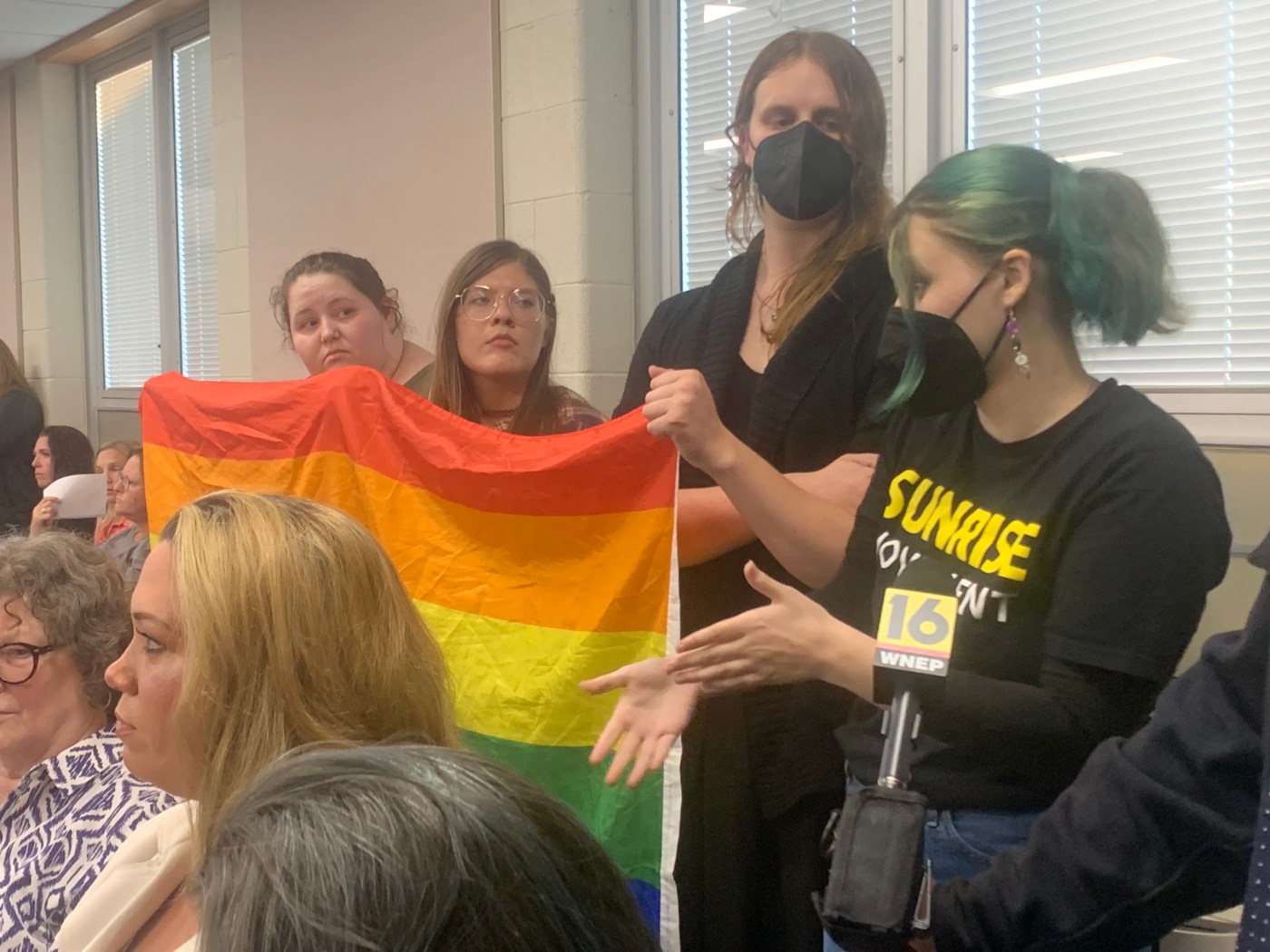A dispute has emerged in the Berwick Area School District in Northeast Pennsylvania regarding new policies affecting transgender students. The Education Law Center (ELC) of Pennsylvania is formally challenging the district’s regulations, which monitor students’ names and dictate bathroom access based on sex assigned at birth. The ELC argues that these policies violate state and federal civil rights laws.
On September 8, 2023, the Berwick Area School Board adopted the controversial measures. In response, the ELC sent a letter outlining its concerns, emphasizing that the policies may infringe upon the rights of transgender and nonbinary students. The ELC’s attorney, Kristina Moon, stated that the organization has received outreach from worried parents and community members regarding the impact of these policies.
Moon expressed concern about a growing trend among Pennsylvania school districts to implement what she describes as anti-LGBTQ policies. “This is really directed at school leaders and their lawyers to make sure that they are clear about the rights of transgender or nonbinary students,” she said.
The ELC cites significant legal precedents, including the U.S. Supreme Court case Bostock v. Clayton County and Doe v. Boyertown Area School District from the U.S. Third Circuit Court of Appeals. These cases affirm protections for students based on gender identity and sexual orientation. Additionally, the Pennsylvania Human Relations Act reinforces these protections, as the Pennsylvania Human Relations Commission formally adopted an interpretation in March 2023 to prohibit discrimination based on sexual orientation or gender identity.
The policies introduced by Berwick Area require that students’ legal names and sex assigned at birth be registered with the school by a parent or guardian. Transgender students wishing to use their preferred name must have a written request submitted by their parents or guardians. Furthermore, the district is not permitted to conceal a student’s gender identity from their parents.
Under the bathroom policy, students are instructed to use restrooms and facilities corresponding to their sex assigned at birth. Those who prefer not to comply are directed to use single-use facilities. The policy states that school principals can also restrict multi-user facilities for the exclusive use of transgender students.
Proponents of the policies argue that they are necessary to protect student privacy and uphold community values. However, the ELC contends that respecting students’ preferred names and pronouns is essential for their mental health and privacy rights. The organization warns that failing to do so could lead to increased rates of depression and suicidal ideation among transgender students, creating a hostile educational environment.
Moon noted that protecting the privacy of transgender students does not hinder family relationships. School counselors, she explained, often work with LGBTQ students privately to help them navigate coming out safely. The ELC further asserts that under state law, schools cannot require students to present birth certificates to attend school, a demand made by the Berwick Area naming policy.
While the ELC acknowledges that federal law mandates student records be available for parental inspection, it insists there is no requirement for schools to proactively disclose preferred names or pronouns. “It is a balance of interests,” Moon stated. “The courts that have looked at this issue have approved school policies that balance the interests of parents and students, encouraging parental input when the student consents, as long as it is safe to do so.”
This legal challenge arises amid a broader national context where policies affecting transgender rights are increasingly scrutinized. Following the inauguration of former President Donald Trump, an executive order was issued that sought to define gender strictly as male or female. This led to assertions that transgender women should be excluded from women’s spaces to protect cisgender women’s rights under Title IX.
One resident of Berwick Area referenced this executive order in support of the new policies, suggesting that federal law was on their side. The ELC, however, warns that reliance on such orders may mislead school districts. The organization emphasizes that established state and federal laws cannot be overridden by executive actions.
Moon reiterated the ELC’s position, stating, “A presidential executive order does not have the force of law and cannot supersede federal and state statutes or case law.” As the debate over transgender rights in education continues, the outcome of this challenge could set important precedents for schools across Pennsylvania and potentially beyond.
